By Mufti Zameelur Rahman
There has historically been general agreement amongst the Ahl al-Sunnah wa l-Jamā‘ah on the belief in the “Mahdī”, that is, a man by the name of “Muḥammad” from the descendants of the Prophet (ṣallallāhu ‘alayhi wasallam) will emerge at the end of time who will rule the Muslim lands for seven to nine years and restore justice to the world after it was filled with injustice. The eighth century historian, Ibn Khaldūn, states: “Recognise that from that which is well-known amongst all of the adherents of Islām throughout the passage of all eras, is that a man from the Ahl al-Bayt (the Prophetic household) must emerge at the end of time, supporting religion and manifesting justice, who the Muslims will follow, and he will dominate the Islāmic territories and will be known as al-Mahdī.”[1] The early Ḥanbalī imām, al-Barbahārī (253 – 329 H), includes belief in the Mahdī amongst the basic tenets of Islām.[2]
Only a fringe minority from the classical period have stated otherwise, claiming that the Mahdī is ‘Īsā (‘alayhissalām) and that they are not two different people. This position is based on a single isolated ḥadīth that is weak and at odds with other narrations (munkar); moreover, it is not a position established from any of the Salaf.[3] Some have imputed this view to Ibn Khaldūn but this attribution is incorrect. Ibn Khaldūn mentioned there were some who rejected the traditonal understanding of the Mahdī based on the narration “there is no Mahdī besides ‘Īsā”[4], but he does not state that he agrees with them. In fact, from his detailed discussion on some of the narrations on the subject, it appears that he concedes that some ḥadīths on the Mahdī are authentic.[5]
As will be demonstrated below, the traditional belief in the Mahdī is well-founded in several clear and authentic ḥadīths. Some people, who claim to be believers in the Sunnah and the Prophetic guidance, have an ideological aversion to the belief in the Mahdī, stemming primarily from secular materialistic, anti-supernatural and anti-religious modernist sentiments that have infiltrated the Muslim world in the last 150 or so years. This has led some individuals in recent times to attack the narrations on the Mahdī without sound basis.
The Mahdī will Lead ‘Īsā (‘alayhissalām) in Ṣalāh
Imām Muslim narrates in his Ṣaḥīḥ:
Al-Walīd ibn Shujā‘, Hārūn ibn ‘Abdillāh and Ḥajjāj ibn al-Shā‘ir narrated to us, saying: Ḥajjāj ibn Muḥammad (al-A‘war) narrated to us from Ibn Jurayj: Abu l-Zubayr reported to me that he heard Jābir ibn ‘Abdillāh say:
I heard the Prophet (ṣallallāhu ‘alayhi wasallam) say:
“A group of my ummah will not stop fighting upon the truth, being manifest until the Day of Judgement. ‘Īsā ibn Maryam will then descend[6] and their leader will say: ‘Come, lead us in ṣalāh.’ He will say: ‘No, some of you are leaders of others.’”[7]
Imām Aḥmad narrates this also in his Musnad directly from Ḥajjāj ibn Muḥammad al-A‘war, who is the most reliable student of Ibn Jurayj, with the same chain.[8]
The same ḥadīth is reported with a different chain to the ṣaḥābī-reporter, Jābir (raḍiyallāhu ‘anhu), by al-Ḥārith ibn Abī Usāmah (186 – 282 H) in his Musnad, clarifying that the leader is “al-Mahdī”:
Ismā‘īl ibn ‘Abd al-Karīm narrated to us: Ibrāhīm ibn ‘Aqīl [ibn Ma‘qil] narrated to us from his father from Wahb ibn Munabbih from Jābir, he said: The Messenger of Allāh (ṣallāllahu ‘alayhi wasallam) said: “‘Īsā ibn Maryam will descend and their leader, al-Mahdī, will say: ‘Come lead us in ṣalāh’ and he will say: ‘No.’…”[9]
Since all the narrators are reliable and there is no apparent break in the chain, Ibn al-Qayyim comments: “This is an excellent chain.”[10] However, there is some dispute over whether Wahb ibn Munabbih heard directly from Jābir.
Ibn Abī Shaybah reports in his Muṣannaf:
Abū Usāmah narrated to us from Hishām [ibn Ḥassān] from Ibn Sīrīn, he said: “The Mahdī is from this ummah, and he is the one who will lead ‘Īsā ibn Maryam [in ṣalāh].”[11]
This is an authentic chain, demonstrating that the eminent Tābi‘ī, Muḥammad ibn Sīrīn (33 – 110 H), understood this to be referring to the Mahdī.
The Mahdī will Distribute Wealth Freely
Imām Muslim narrates several ḥadīths from Jābir ibn ‘Abdillāh and Abū Sa‘īd al-Khudrī regarding a “caliph” who will appear “at the end of time” and will “distribute/scatter wealth without counting.”[12] Imām Muslim’s teacher, Abū Bakr ibn Abī Shaybah, mentions this narration in the section on the Mahdī.[13] Scholars have thus understood these authentic ḥadīths as referring to the Mahdī.
Authentic and Explicit Narrations on the Mahdī
While these were somewhat inexplicit narrations on the Mahdī, the following will discuss several explicit and authentic narrations on the subject, as well as some authentic narrations from the Salaf (ṣaḥābah and tābi‘īn). Imām Abū Ja‘far al-‘Uqaylī (d. 322 H), the great ḥadīth scholar and narrator-critic from the third Hijrī century, said: “There are [several] excellent [i.e. strong] ḥadīths on the Mahdī.”[14] Al-Tirmidhī and Ibn Ḥibbān from the early imāms of ḥadīth have also mentioned that some of the ḥadīths are authentic, while none of the early imāms have said all the ḥadīths are inauthentic. The authoritative position of the early imāms of ḥadīth is, therefore, that the doctrine of the Mahdī is authentic and established.
Ḥadīth of Abū Sa‘īd al-Khudrī
The ḥadīth of Abū Sa‘īd al-Khudrī is probably the most reliable, explicit ḥadīth on the subject of the Mahdī, and one that Ibn Khaldūn, despite his efforts to criticise all ḥadīths on the subject, was unable to fault. The most famous route to Abū Sa‘īd al-Khudrī is from his student Abu l-Ṣiddīq al-Nājī who is also known as Bakr ibn ‘Amr. Many of the latter’s students narrated the ḥadīth from him.
One such student is ‘Awf ibn Abī Jamīlah al-A‘rābī. Imām Aḥmad narrates in his Musnad:
Muḥammad ibn Ja‘far (Ghundar) narrated to us: ‘Awf narrated to us from Abu l- Ṣiddīq from Abū Sa‘īd al-Khudrī from the Prophet (ṣallallāhu ‘alayhi wasallam), he said: “The Hour will not commence until the world is filled with oppression and transgression, and then a man from my family and descendants will emerge and fill it with justice and fairness just as it was filled with oppression and transgression.”[15]
The editors of Musnad Aḥmad comment: “Its chain is ṣaḥīḥ according to the criterion of the two shaykhs” i.e. al-Bukhārī and Muslim.
Ibn Ḥibban narrates it in the section on the Mahdī in his Ṣaḥīḥ from his teacher, Abū Ya‘lā (the famous author of the Musnad), that he said: “Abū Khaythamah [Zuhayr ibn Ḥarb] narrated to us: Yaḥyā ibn Sa‘īd [al-Qaṭṭān] narrated to us: ‘Awf narrated to us: Abu l- Ṣiddīq narrated to us from Abū Sa‘īd al-Khudrī” after which he mentions the same ḥadīth with the same wording.[16]
These are impeccable and faultless chains, at the height of authenticity.
Another student of Abu l-Ṣiddīq al-Nājī who narrated it from him is Maṭar al-Warrāq. Imām Aḥmad narrates:
Abu l-Naḍr narrated to us: Abū Mu‘āwiyah Shaybān narrated to us from Maṭar ibn Ṭahmān from Abu l-Ṣiddīq from Abū Sa‘īd al-Khudrī from the Prophet (ṣallallāhu ‘alayhi wasallam), he said: “The Hour will not commence until a man from my family will rule, being prominent with a pointed-nose, filling the earth with justice just as it was previously filled with oppression.”[17]
Ibn Hibbān narrates it with a different chain up to Abū Mu‘āwiyah Shaybān after which it is the same. The chain up to Maṭar is authentic, although Maṭar himself is somewhat weak.
There are several other students of Abu l-Ṣiddīq al-Nājī who narrate the ḥadīth on the Mahdī from him, so the famous imām of ḥadīth, Abū Nu‘aym al-Aṣfahānī, says: “[It is] widely-narrated (mashhūr) from Abu l-Ṣiddīq from Abū Sa‘īd.”[18]
Abu l-Ṣiddīq al-Nājī or Bakr ibn ‘Amr (d. 108 H) was a reliable student of Abū Sa‘īd al-Khudrī, and his narrations from Abū Sa‘īd are found in all six of the famous books of ḥadīth.
Imām Abū Dāwūd narrates the ḥadīth from Abū Sa‘īd al-Khudrī through a different route:
Sahl ibn Tammām ibn Bazī‘ narrated to us: ‘Imrān al-Qaṭṭān narrated to us from Qatādah from Abū Naḍrah from Abū Sa‘īd al-Khudrī, he said: The Messenger of Allāh (ṣallallāhu ‘alayhi wasallam) said: “The Mahdī is from me [i.e. from my progeny], with a prominent forehead and a pointed nose. He will fill the earth with justice and fairness just as it was filled with injustice and oppression. He will rule for seven years.”[19]
Ibn al-Qayyim says this is an “excellent chain”[20], although there is some dispute about ‘Imrān ibn Dāwar al-Qaṭṭān (d. 149 H). Al-Ṭabarānī narrated the same ḥadīth with a different route to ‘Imrān al-Qaṭṭān after which the chain is the same.[21]
Hence, there can be no doubt over the origination of this ḥadīth from Abu Sa‘īd al-Khudrī.
Ḥadīth of ‘Abdullāh ibn Mas‘ūd
The ḥadīth of ‘Abdullāh ibn Mas‘ūd (raḍiyallāhu ‘anhu), one of the most prominent and distinguished ṣaḥābah, is narrated through the route of ‘Ᾱṣim ibn Bahdalah (ca. 50 – 127 H) from Zirr ibn Ḥubaysh (d. 82 H) from ‘Abdullāh ibn Mas‘ūd. ‘Ᾱṣim is the famous imām of qirā’ah, and his narrations from Zirr from Ibn Mas‘ūd are found in all the major books of ḥadīth. In fact, one of ‘Ᾱṣim’s main teachers in recitation was Zirr. The ḥadīth on the Mahdī is found through several routes leading up to ‘Ᾱṣim.
Imām Abū Dāwūd narrated through five different chains leading up to ‘Umar ibn ‘Ubayd, Abū Bakr ibn ‘Ayyāsh, Sufyān al-Thawrī, Zā‘idah ibn Qudāmah and Fiṭr ibn Khalīfah, all from ‘Ᾱṣim ibn Bahdalah from Zirr from Ibn Mas‘ūd, that he reported from the Prophet (ṣallallāhu ‘alayhi wasallam) on the Mahdī.[22] Al-Tirmidhī also reported it with two separate chains from Sufyān al-Thawrī and Sufyān ibn ‘Uyaynah from ‘Ᾱṣim. The wording of the ḥadīth is: “The world will not end” or “If only one day remained of the world, Allāh will extend it” followed by: “until a man from my family will rule, his name matching with my name.”[23] Al-Tirmidhī said of this ḥadīth it is “ḥasan ṣaḥīḥ.”
Ḥadīth of Abū Hurayrah
‘Ᾱṣim ibn Bahdalah also narrates from Abū Ṣāliḥ from Abū Hurayrah (raḍiyallāhu ‘anhu) that he reported from the Prophet (ṣallallāhu ‘alayhi wasallam): “If only one day remained of the world, a man from my household will rule.”[24] Al-Tirmidhī reports this from Sufyān ibn ‘Uyaynah from him and Ibn Ḥibbān reports it from Abū Shihāb Muḥammad ibn Ibrāhīm from him. Al-Tirmidhī comments that it is “ḥasan ṣaḥīḥ.”
Ḥadīth of ‘Alī ibn Abī Ṭālib
Fiṭr ibn Khalīfah reports from al-Qāsim ibn Abī Bazzah from Abu l-Ṭufayl from ‘Alī (raḍiyallāhu ‘anhu) from the Prophet (ṣallallāhu ‘alayhi wasallam) that he said: “If only one day remained of time, Allāh would appoint a man from my family, filling [the earth] with justice just as it was filled with injustice.”[25] Shaykh Muḥammad ‘Awwāmah comments that the isnād is ḥasan.
Hence, these are four ḥadīths which have been deemed authentic, clearly referring to a man from the descendants of the Prophet (ṣallallāhu ‘alayhi wasallam), named Muḥammad, who will rule towards the end of time and fill the earth with justice.
Narrations from the Salaf
Ibn Abī Shaybah narrates in the Muṣannaf:
Ibn ‘Uyaynah narrated to us from ‘Amr [ibn Dīnār] from Abū Ma‘bad from Ibn ‘Abbās: “The days and nights will not pass before a young man from us, the household, takes authority. Tribulations will not mix with him nor he with tribulations.” We said: “Abu l-‘Abbās, your elders were unable to [acquire] it and your younger ones will acquire it?” He said: “That is the prerogative of Allāh, He gives to whoever He wills.”[26]
This is an authentic chain.
Al-‘Uqaylī narrates with an authentic chain to Qatādah ibn Di‘āmah:
Sa‘īd ibn al-Musayyib (15 – 94 H) was asked about the Mahdī, who is he from? He said: “From Quraysh.” Qatādah then asked, “From which [branch] of the Quraysh?” He said: “Banū Hāshim.” He asked: “Which [family] of Banū Hāshim?” He said: “From the descendants of Fāṭimah.”[27]
The reality of the Mahdī, and that he will lead ‘Isā (‘alayhissalām) in ṣalāh, has also been authentically reported from Ibn Sīrīn as was mentioned earlier.
Ibn ‘Abbās was from Makkah, Sa‘īd ibn al-Musayyib from Madīnah and Ibn Sīrin from Baṣrah. Hence, the future coming of the Mahdī was a popular and known belief from the time of the Salaf.
“There is no Mahdī besides ‘Isā”?
The ḥadīth, “There is no Mahdī besides ‘Īsā”, is found in Sunan Ibn Mājah[28], and hinges on one individual, Muḥammad ibn Khālid al-Janadī. Al-Janadī has been regarded as “unknown” and “rejected”[29] though it is reported from Ibn Ma‘īn that he considered him strong.[30] The narration consists of several parts. As al-Bayhaqī states, all the parts of the ḥadīth are corroborated in other reliable narrations besides the addition “there is no Mahdī besides ‘Isā”, hence this is regarded as “munkar” – an erroneous addition[31], even if al-Janadī is strong. The fact that the ḥadīth is mistaken is also deduced from its opposition to all other ḥadīths on the subject. Hence, Abu l-Hasan al-Ᾱburrī (d. 363 H) says after quoting it: “The reports on the Mahdī are recurring (tawātarat) and overflowing (istafāḍat), that he will be from the household of the Prophet (ṣallallāhu ‘alayhi wasallam), that he will rule for seven years and will fill the earth with justice, and that ‘Īsā ibn Maryam will come out with him and assist him in killing Dajjāl at the gate of Ludd in the land of Palestine, and that he will lead this ummah and ‘Isā (upon him peace) will pray behind him. Muḥammad ibn Khālid al-Janadī is not known amongst the experts of the field from the people of knowledge and transmission.”[32]
The late Ḥanbalī scholar, Muḥammad ibn Aḥmad al-Saffārīnī (1114 – 1188 H), states: “The truth upon which is the people of truth is that the Mahdī is other than ‘Īsā, and that he will emerge before the descent of ‘Īsā (upon him peace). The narrations on his emergence are numerous, reaching the level of mass-transmission in meaning. It has become widespread amongst the scholars of [Ahl] al-Sunnah, thus is counted amongst their beliefs…Thus, belief in the emergence of the Mahdī is necessary as establshed by the experts of knowledge and recorded in the beliefs of the Ahl al-Sunnah wa l-Jamā‘ah.”[33]
Concluding Comments
As demonstrated above, the belief in the Mahdī is well-supported in the ḥadīths. Great imāms of ḥadīth, like ‘Abd al-Razzāq al-Ṣan‘ānī, Ibn Abī Shaybah, al-Tirmidhī, Ibn Mājah, Abū Dāwūd, Ibn Ḥibbān and al-Ḥākim, have dedicated sections in their ḥadīth collections to the Mahdī. Major imāms, like al-Tirmidhī, al-‘Uqaylī and Ibn Ḥibbān, have regarded some of the ḥadīths on the subject to be authentic. It is true that many of the narrations on the Mahdī are disputed, inauthentic or the result of fabrication or error. However, disputed and inauthentic narrations do not in any way mean the basic concept of the Mahdī – a person from the household of the Prophet (ṣallallāhu ‘alayhi wasallam) who will rule the Muslim world towards the end of time and restore justice – is not well-founded.
While some of the short reports on the Mahdī have been mentioned in this piece, other narrations, some with weaknesses in them, mention further details about the coming of the Mahdī. It is, for example, reported that the Mahdī will be given bay‘ah in between the Maqām Ibrāhīm and the Yemeni Corner of the Ka‘bah; that he will originally be from Madīnah and will emerge after the death of a ruler and after a dispute between the sons of three rulers; and that he will govern according to the Sunnah, and defeat armies sent to fight him; and other such details.[34] It was not the purpose of this piece to cite these narrations, but only to show that the concept of Mahdī is authentic and firmly-established in Sunnī belief. One can find these further narrations in al-Bidāyah wa l-Nihāyah and other works on the signs of the Hour.
[1] Tārīkh Ibn Khaldūn, Dār al-Fikr, 1:388
[2] Sharḥ al-Sunnah, Maktabah Dār al-Minhāj, p. 51
[3] There are reports from Mujāhid ibn Jabr, al-Ḥasan al-Baṣrī and the students of ‘Abdullāh ibn Mas‘ūd, stating, “The Mahdī is ‘Īsā, the son of Maryam.” (Muṣannaf Ibn Abī Shaybah, Shirkah Dār al-Qiblah, 21:291; Tārīkh Dimashq, 47:519, al-Sunan al-Wāridah fi l-Fitan, p. 1076) However, these narrations contain weakness and only affirm ‘Īsā (‘alayhissalām) as “the Mahdī” (guided-one) without denying the reality of the one commonly-known as the Mahdī.
[4] Tārīkh Ibn Khaldūn, 1:401-2
[5] ibid. 1:394, 401
[6] On the fundamental Islāmic belief in the descent of ‘Īsā (‘alayhissalām), see: http://ahlussunnah.boards.net/thread/715/second-coming-fundamental-islamic-belief
[7] Ṣaḥīḥ Muslim, Maktabat al-Bushrā, 1:399
[8] Musnad Aḥmad, Mu’assasat al-Risālah, 23:334-5
[9] Quoted in al-Manār al-Munīf, p. 147-8
[10] ibid. p. 148
[11] Muṣannaf Ibn Abī Shaybah, Shirkah Dār al-Qiblah, 21:293
[12] Ṣaḥīḥ Muslim, Maktabat al-Bushrā, 7:567-9
[13] Muṣannaf Ibn Abī Shaybah, 21:287
[14] al-Ḍu‘afā’, Dār al-Ṣamī‘ī, p. 974
[15] Musnad Aḥmad, 17:416
[16] Ṣaḥīḥ Ibn Ḥibban, Dār Ibn Ḥazm, 6:93
[17] Musnad Aḥmad, 17:209
[18] Ḥilyat al-Awliyā’, 3:102
[19] Sunan Abī Dāwūd, Mu’assasat al-Rayyān, 5:31
[20] al-Manār al-Munīf, p. 144
[21] al-Mu‘jam al-Awsaṭ, 9:176
[22] Sunan Abī Dāwūd, 5:30
[23] Sunan al-Tirmidhī, Dār al-Gharb al-Islāmī, 4:85
[24] Sunan al-Tirmidhī, 4:85; Ṣaḥīḥ Ibn Ḥibbān, 6:92
[25] Muṣannaf Ibn Abī Shaybah, 21:293, Musnad Aḥmad, 2:163
[26] Muṣannaf Ibn Abī Shaybah, 21:288
[27] Al-Ḍu‘afā’, p. 430; also see: al-Sunan al-Wāridah fi l-Fitan, p. 1061
[28] Sunan Ibn Mājah, 5:165
[29] Mīzān al-Itidāl, 3:535
[30] al-Bidāyah wa l-Nihāyah, Dār Ibn Kathīr, 17:46
[31] Bayān Khaṭa’ man Akhṭa’a ‘ala l-Shāfi‘ī, p. 296-302
[32] Manāqib al-Shāfi‘ī; quoted in al-Manār al-Munīf, p. 142
[33] Lawāmi‘ al-Anwār al-Bahiyyah, 2:84
[34] Musnad Aḥmad, 44:286; Ṣaḥīḥ Ibn Ḥibbān, 6:95, 97; Sunan Ibn Mājah, 5:211-2


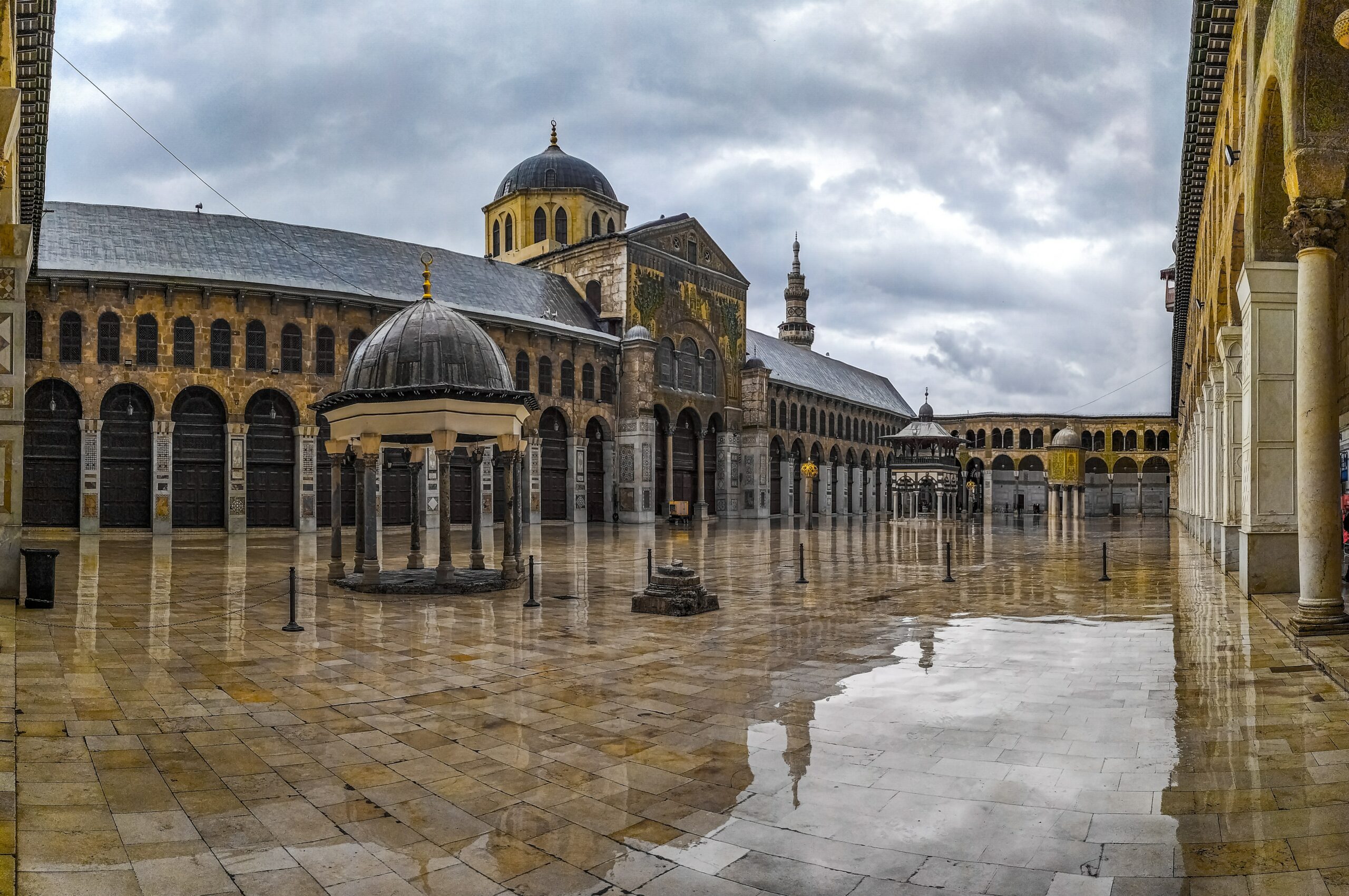
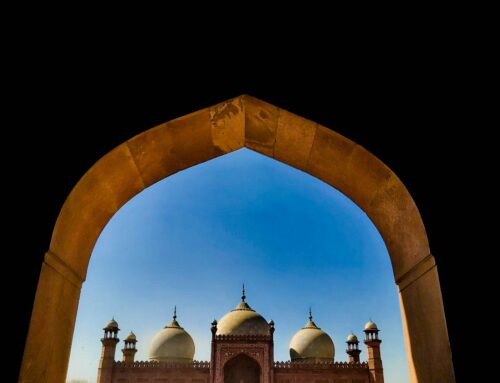
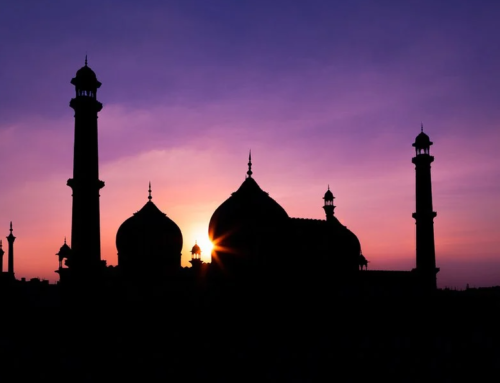
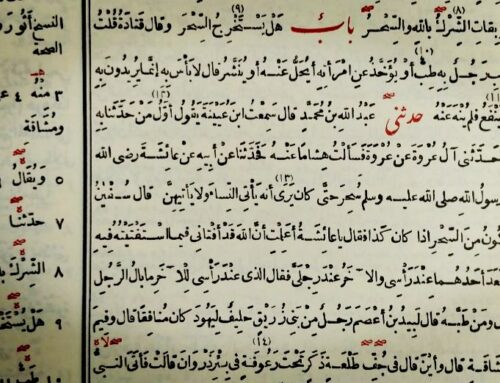
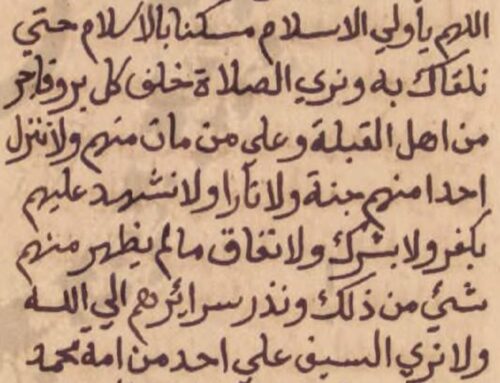

Leave A Comment